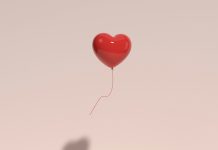
Recovering from a stroke can be a long, challenging journey, but exercise is a crucial part of getting back to health.
Strokes can affect the brain’s ability to communicate with the body, often resulting in weakness or paralysis on one side of the body.
Fortunately, targeted exercises can help improve this condition by enhancing both physical strength and coordination while also boosting recovery in the brain itself.
Exercise after a stroke isn’t just about physical rehabilitation; it also enhances neuroplasticity, the brain’s ability to reorganize itself by forming new neural connections.
This ability allows the brain to compensate for injury and adjust its activity in response to new situations or changes in one’s environment. Here, we explore several types of exercises that have been found to be particularly effective for stroke recovery, as supported by research.
Firstly, aerobic exercise plays a significant role. Activities like walking, swimming, or using a stationary bike can significantly improve cardiovascular health, which is crucial since many stroke survivors have compromised heart and lung functions.
Aerobic exercise not only strengthens these systems but also increases endurance and overall energy levels, which can be particularly beneficial during recovery.
A study published in the Stroke Journal found that moderate-intensity aerobic exercise, performed three times a week, improved cognitive function and the ability to perform daily activities.
Strength training is another key component of stroke rehabilitation. It involves using weights or resistance bands to build muscle strength and endurance.
After a stroke, muscle weakness is common, and strength training can help restore some of the lost muscle function.
Research from the American Heart Association indicates that strength training can improve muscle mass and coordination, which in turn helps with balance and prevents falls—a common risk for stroke survivors.
Balance exercises are also vital. Strokes often impair balance, which can be disorienting and dangerous. Exercises such as standing on one foot, walking heel-to-toe, or practicing yoga can help restore balance and confidence.
A systematic review noted improvements in balance and functional walk tests among stroke patients who engaged in tailored balance training.
Flexibility exercises, such as stretching, are essential for maintaining muscle health and preventing stiffness, which is especially important for those parts of the body that may become underused due to paralysis or weakness.
Gentle stretching helps maintain and improve range of motion and reduce pain and stiffness.
Lastly, task-oriented exercises are extremely beneficial for stroke recovery. These involve practicing specific daily tasks like walking, climbing stairs, or moving from sitting to standing.
The repetitive nature of these tasks helps retrain the brain to control these movements efficiently.
According to research in the Archives of Physical Medicine and Rehabilitation, task-oriented exercises significantly improve the ability to perform daily activities, enhancing independence for stroke survivors.
It’s important for stroke survivors to work with a rehabilitation therapist to design an exercise program that suits their specific needs and limitations. Starting slowly and gradually increasing the intensity and duration of exercises can help manage fatigue and avoid injuries.
In conclusion, incorporating a variety of exercises into a stroke recovery program can significantly enhance physical functions and overall quality of life.
Aerobic exercises, strength training, balance exercises, flexibility stretches, and task-oriented practices not only aid in physical recovery but also contribute to improvements in mental health and cognitive functions.
While the road to recovery might seem daunting, regular exercise offers a pathway to reclaiming independence and health.
If you care about stroke, please read studies about how to eat to prevent stroke, and diets high in flavonoids could help reduce stroke risk.
For more information about health, please see recent studies about how Mediterranean diet could protect your brain health, and wild blueberries can benefit your heart and brain.
Copyright © 2024 Knowridge Science Report. All rights reserved.



